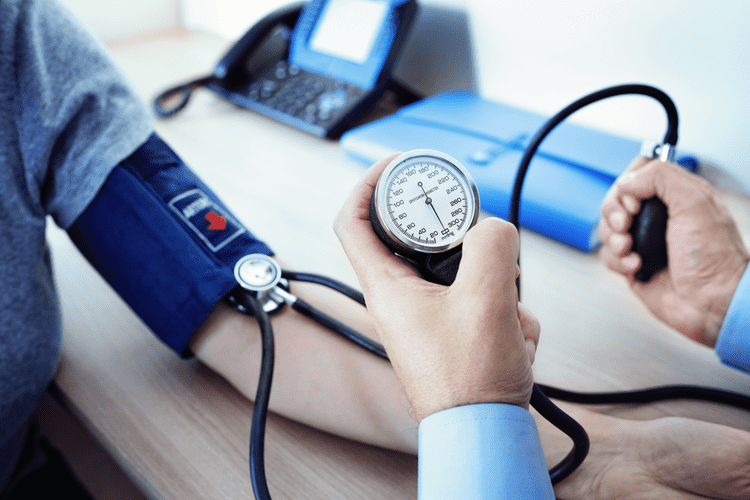Tylenol And Alcohol
Contents

Pregnant women should be cautious about their use of acetaminophen because it can increase the risk of neurological, reproductive, and urogenital disorders. Acetaminophen is thought to be responsible for 500 deaths in the United States each year and over emergency department visits. Hydroxy acetaminophen, in addition to its drug metabolism properties, plays an important role in liver injury.

From this sober living for women in beverly, ma it seems evident that light to moderate amounts of alcohol alone may have a protective effect on renal risks. More research is needed to better define the actual risks of these readily available OTC medications and to determine if other labeling is warranted. Also, it would be of interest to explore the age, racial, gender and other disparities of these findings in further studies which the authors are interested to undertake. Acetaminophen is commonly used to treat fever, pain, and aches. Side effects from excessive doses can range from mild to severe.
This study and other prospective data suggest that short-term maximal therapeutic acetaminophen dosing does not cause liver injury in alcoholics. Typically, taking the standard dose of Tylenol after one night of moderate drinking should not cause liver damage. However, regular, heavy alcohol use combined with repeated daily doses of acetaminophen can increase the risk of acetaminophen-related toxicity.
Alcohol and Tylenol (or other pain relievers) Don’t Mix
Instead, she advises rehydrating your body with water and plenty of electrolytes as treatment options for a hangover. And Dr. Lembke says it is better to just avoid drinking to the point of needing a painkiller altogether. If you do drink alcohol, even just occasionally, we think you probably should find other ways to relieve your headaches or arthritis pain when you have had a few drinks. You may want to consider using home remedies or eating anti-inflammatory foods that are far less likely to damage your stomach or your liver. You’ve heard the saying about “don’t drink and drive.” We think it also applies to many pain relievers. If you are going to have a few alcoholic beverages, we think it would be a good idea to avoid pain relievers or headache remedies.
The analysis was done on 9643 participants corresponding to a National Population Estimate of 286,222,757. Among these, over 65% were aged 45 or less, 68.93% White, 13.23% Hispanic, and 12.23% Black. Females (51.17%) were marginally more represented than males (48.83%). Most of the participants (95.37%) were either current or former smokers, 33.40% hypertensive, 25.48% obese and 35.31% diabetic or pre-diabetic .
The survey is unique in that it combines interviews with physical and laboratory examinations. In 2003–2004, 12,761 persons were sampled among which, 10,122 were interviewed and 9643 examined/tested. Variables for this analysis were extracted from the questionnaire , medical examination, and laboratory data files, thus comprising 9643 participants. Study groups were of similar demographic and baseline characteristics, including baseline serum AST, ALT, INR, and bilirubin . More than 80% of study participants reported their most recent drinking episode lasting more than 1 week . “Repeated use will just progress the damage, making it difficult for the body to rebound back,” Dr. Free says.
In contrast to the Lauterburg study, our subjects group receiving acetaminophen 1 g four times daily did not develop a decrease in the plasma concentration of glutathione. The best way to avoid complications is to take the right amount of acetaminophen for a safe length of time and to drink only moderate amounts of alcohol. If you have liver disease or increased risk factors for liver disease, talk to your doctor about other pain remedies that are safer for you. If you take acetaminophen as directed, it is permissible to consume alcohol in moderation. The recommended daily limit for drinking in moderation is three drinks.
How Long After Drinking Can I Take Tylenol Pm
The company was allowed to review the initial draft of the manuscript to assure that no confidential proprietary information was released. The authors received no compensation outside of normal salary for work performed on this project. There were 156 participants that entered the study with a serum ALT above the ULN. The ALT group means of those with a baseline ALT greater than the ULN were consistently two to three times higher throughout the trial, regardless of group assignment . Alcohol can dissolve away the protective mucous lining in the stomach. Taking a standard dose of aspirin after a night on the town could lead to significant stomach irritation and possibly even an ulcer.
Alcohol and acetaminophen — the active ingredient of Tylenol — can negatively affect the liver when taken on their own. When they are mixed, however, the synergistic effect they have on the liver multiplies the potential damage4that they can cause. Many enzymes in your body break down acetaminophen and other drugs so your body can use them.
These drugs are normally safer to use with alcohol, but they may cause gastrointestinal discomfort or even bleeding in those with a history of gastrointestinal bleeding. There are also prescription pain medications that may be safer to use with alcohol. Many types of drugs should not be taken with alcohol because of potential negative interactions, many of which affect the liver. Ultimately, mixing any substance with alcohol is not recommended unless you first consult with your doctor about potential drug interactions and effects. As your body uses acetaminophen, it converts it into a harmful substance.
- Business clients include McNeil Consumer & Specialty Pharmaceuticals, the manufacturer of Motrin and Tylenol .
- Although alcohol is generally safe to consume in moderation, excessive consumption can be harmful both personally and economically.
- At The Recovery Village at Baptist Health, our team of experts can help you stop using alcohol and support you on your path to a healthier and more fulfilling future.
- Tylenol is the generic name for acetaminophen, a drug that is available in the United States.
- Consuming alcohol with lithium, a medication used to treat bipolar disorder, can have dangerous side effects.
Instead, it’s the liver itself that produces a toxic compound as it breaks down and processes the drug. Drugs that contain acetaminophens only block the pain and fever; they don’t contain anti-inflammatory properties. We want you to be safe, healthy and well, and that’s exactly why we’re sharing this information with you today.
If GSH stores are depleted, NAPQI can bind to hepatocellular components resulting in liver injury. Human studies have demonstrated that chronic alcohol exposure can increase CYP2E1 activity, up to approximately twice baseline . Increased CYP2E1 activity begins immediately upon exposure to ethanol . Following cessation of chronic alcohol exposure, human studies have also demonstrated that CYP2E1 induction is transient, lasting at most a few days . Animal and human data suggest that different mechanisms can contribute, to different degrees and at different ethanol concentrations, to increasing CYP2E1 activity . The administration of acetaminophen 4 g/day for 3 consecutive days to newly-abstinent chronic alcoholic subjects did not result in a change in serum ALT, AST, bilirubin, or INR.
Health Risks of Mixing Tylenol and Alcohol
If you are drinking two or fewer drinks per day as a man or one or fewer per day as a woman, then you should be able to take Tylenol whenever you normally would. If you drink heavily or binge drink, it is best toavoid taking Tylenoluntil the effects of the alcohol have worn off. This can take 12 to 24 hours, depending on how much alcohol was used. Tylenol is a non-opioid pain and fever medication that you can purchase over the counter. Acetaminophen, theactive ingredientof Tylenol, is included in many different medications. It can be combined with anything from flu medicines to opioid pain medications to enhance their effectiveness.
Other continued research on the various physiologic mechanisms at work in possible APAP toxicity to the renal system is also needed. The toxic effects of APAP and alcohol on the kidney at high doses are fairly well established. However, the threshold doses at which these effects begin to occur is unknown. The medical literature contains few prospective studies involving administration of acetaminophen to newly-abstinent alcoholic patients. Lauterburg found that plasma glutathione concentration was decreased in eight newly-abstinent alcoholic subjects and decreased further following a single supratherapeutic dose of acetaminophen . As shown by the increase in glutathione in both experimental groups, our results suggest that the alcoholic patient has blood concentrations of glutathione that increase when alcohol ingestion is terminated.
However, there is no scientific evidence that people with AUD who take the recommended dose of acetaminophen increase their risk of liver damage. We publish material that is researched, cited, edited and reviewed by licensed medical professionals. The information we provide is not intended to be a substitute for professional medical advice, diagnosis or treatment. It should not be used in place of the advice of your physician or other qualified healthcare provider.
A liver transplant is the only treatment for liver damage, which is irreversible. The peak ALT measure of these 44 subjects was 75 IU/L compared to 312 IU/L for the entire study sample. No subject with an AST to ALT ratio of 2.0 or greater developed an ALT more than three times the ULN or reported any study-related adverse events. However, keep in mind that you should never take acetaminophen while under the influence of alcohol. Technically, you want to wait until the next day to take the recommended dosage for Tylenol.

It is best to avoid combining alcohol with acetaminophen in any way. Alcohol and acetaminophen both have negative effects on the liver, which is why they should not be combined. Alcohol consumption and the risk of renal dysfunction in apparently healthy men. Mitic-Zlatkovic M., Stefanovic V. Acute effects of acetaminophen on renal function and urinary excretion of some proteins and enzymes in patients with kidney disease.
Do clindamycin and alcohol mix?
Pain is a common patient complaint and is frequently self-treated with over-the-counter analgesics such as acetaminophen (Kaufman et al., 2002). Currently, poisoning is the leading cause of injury-related mortality in the United States with specific causation related to drug-related poisonings . In particular, pain medications are among the most common, and an opiate epidemic is affecting major segments of rural America (Albert et al., 2015).
Can You Take Tylenol After Drinking?
Prostaglandins also play a role in increasing body temperature. When these chemicals are blocked, it can lead to reduced pain and a regular body temperature. If you or someone you know has combined alcohol and Tylenol, you should seek medical care if signs of severe intoxication develop. Someone having difficulty walking, talking or staying awake may be experiencingalcohol poisoningand should seek medical help immediately. If you suspect you may have signs of liver damage, you should contact a doctor as soon as possible to be evaluated and treated if necessary.
Tylenol is one of the most commonly used and widely available over-the-counter pain medications. When most people refer to Tylenol, they are actually referring to acetaminophen — the active ingredient in Tylenol. This means that when both substances are present, it can take the liver longer to process each of them. When this occurs, the substances may stay in the bloodstream for longer.
